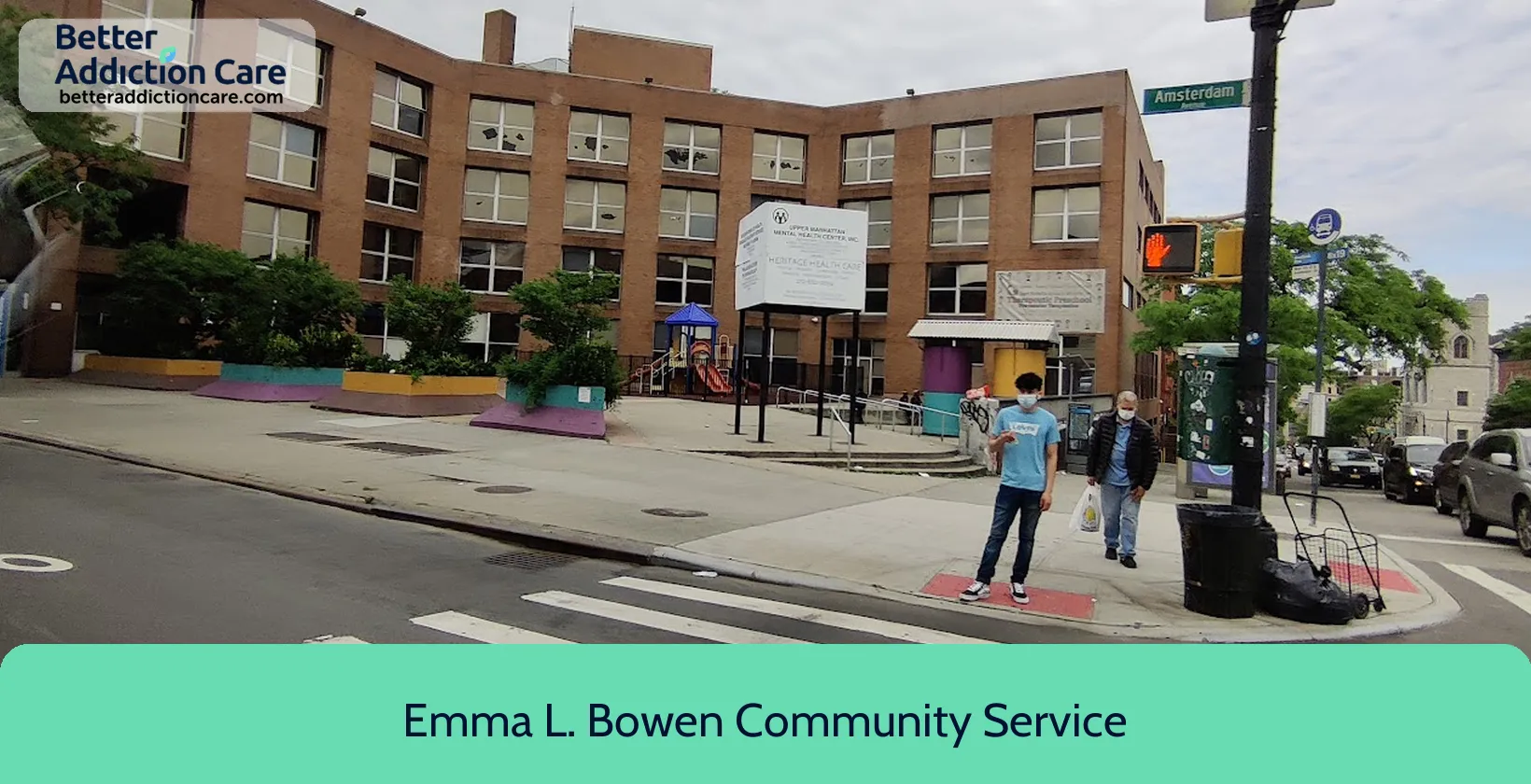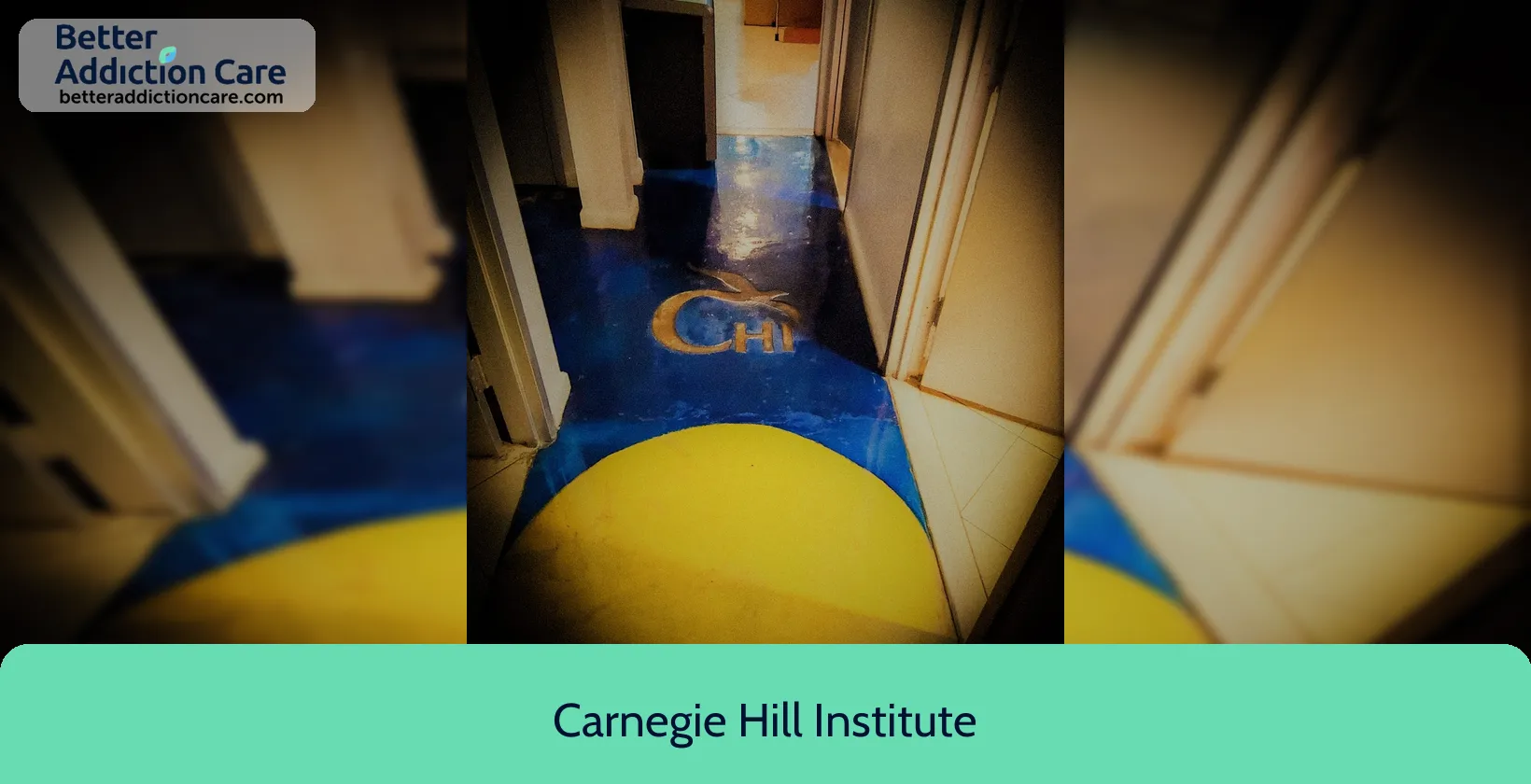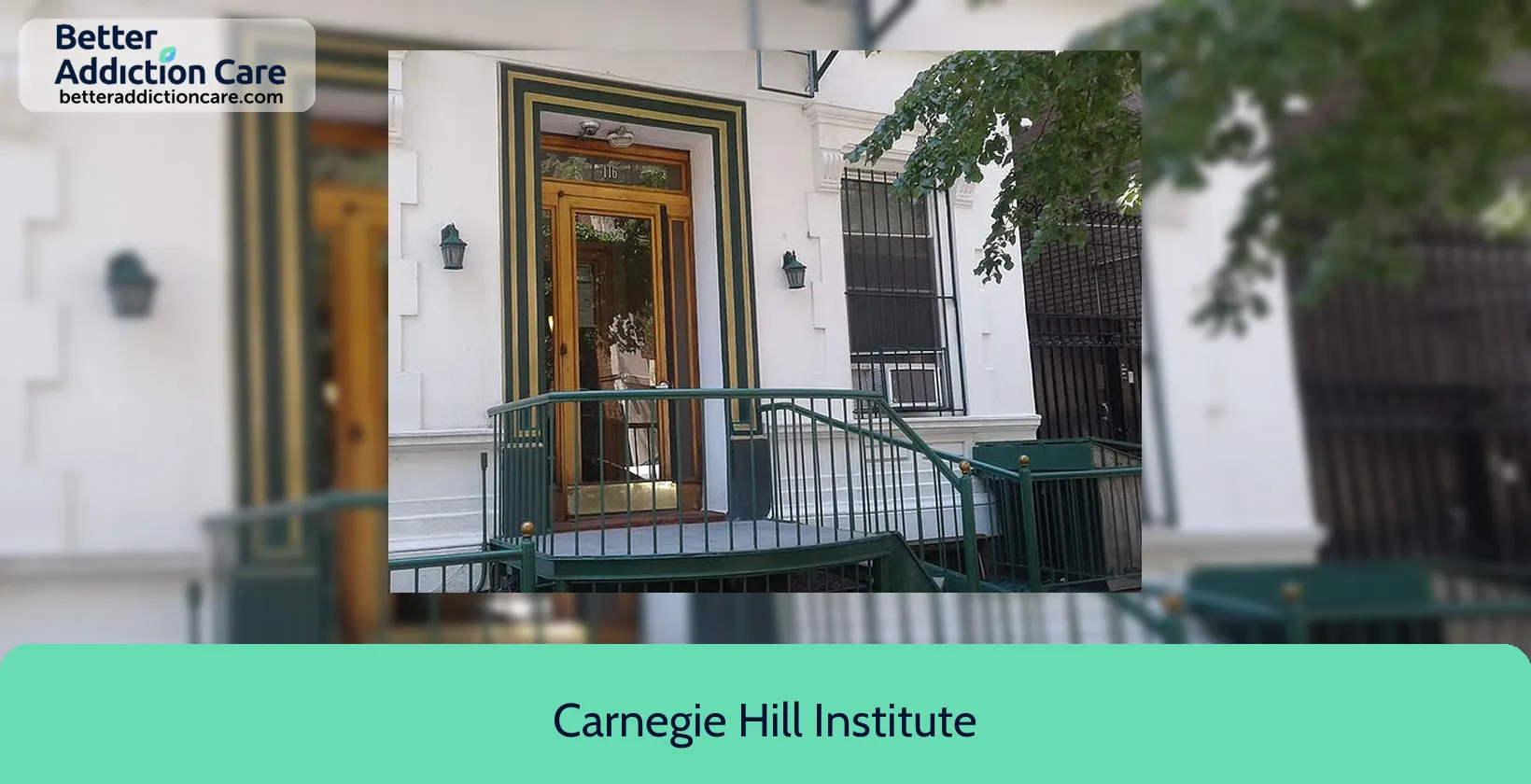Carnegie Hill Institute
Overview
Carnegie Hill Institute is an accredited substance abuse treatment center that provides inpatient and outpatient treatment for men between 18 and 65+ years of age. As part of their special programs, Carnegie Hill Institute treats clients with co-occurring mental and substance use disorders, criminal justice (other than dui/dwi)/forensic clients, and clients who have experienced trauma. To help patients achieve sobriety, Carnegie Hill Institute provides intake assessments. Afterward, patients receive cognitive behavioral therapy, telemedicine/telehealth therapy, and substance use disorder counseling during treatment. Carnegie Hill Institute is located in New York City, New York, providing treatment for people in New York County, accepting cash or self-payment, medicaid, and medicare.
Carnegie Hill Institute at a Glance
Payment Options
- Cash or self-payment
- Medicaid
- Medicare
- State-financed health insurance plan other than Medicaid
- Private health insurance
Assessments
- Screening for tobacco use
- Comprehensive mental health assessment
- Comprehensive substance use assessment
- Screening for mental disorders
- Screening for substance use
Age Groups
- Young adults
- Adults
- Seniors
Ancillary Services
- Suicide prevention services
- Specially designed program for DUI/DWI clients
- Domestic violence services, including family or partner
- Mental health services
- Opioid use disorder clients only
Highlights About Carnegie Hill Institute
7.66/10
With an overall rating of 7.66/10, this facility has the following balanced range of services. Drug Rehab and Detox: 8.15/10, Alcohol Rehabilitation: 8.00/10, Treatment Options: 7.82/10, Insurance and Payments: 6.67/10.-
Drug Rehab and Detox 8.15
-
Alcohol Rehabilitation 8.00
-
Treatment Options 7.82
-
Insurance and Payments 6.67
Accreditations
State mental health department:
State mental health department accreditation refers to the process of evaluating and certifying the quality and standards of a state's mental health department, ensuring that it provides high-quality services and meets specific criteria for mental health care. The accreditation process is performed by a third-party organization and helps to improve the overall care and treatment of individuals with mental health conditions.
Drug Enforcement Agency (DEA):
DEA accreditation refers to the process by which a law enforcement agency is recognized by the Drug Enforcement Agency (DEA) as having met specific training, operational, and resource requirements necessary to participate in DEA-led drug enforcement efforts. This accreditation allows the agency to perform DEA-related tasks such as conducting investigations, executing federal search warrants, and participating in joint task forces.
SAMHSA certification for opioid treatment program (OTP):
SAMHSA's Opioid Treatment Programs (OTP) Accreditation is a rigorous recognition process, signaling an OTP's commitment to high-quality care for those with opioid use disorders. It assures patients, families, and the community that the program adheres to evidence-based practices, maintains a safe environment, and employs qualified staff. This accreditation represents a commitment to addressing the opioid epidemic and promoting recovery, symbolizing quality and accountability in opioid addiction treatment.
The Joint Commission:

The Joint Commission accreditation for addiction and behavioral health is a prestigious recognition signifying a facility's commitment to delivering high-quality care and safety for individuals dealing with substance abuse and mental health issues. It involves rigorous evaluations and assessments, ensuring patients receive evidence-based treatment and exceptional care. This accreditation demonstrates a facility's dedication to continuous improvement and ethical practices, building trust among patients and healthcare professionals seeking top-tier addiction and behavioral health services.
Effective date: 09/16/2017
Registration: 358507
State department of health:

Government agencies issue State Licenses, which grant rehabilitation organizations permission to conduct their operations lawfully within specific geographic regions. Licenses needed to operate are typically determined by the type of rehabilitation program offered by the facility and its physical location.
Registration: 549
Treatment At Carnegie Hill Institute
Treatment Conditions
- Alcoholism
- Substance use treatment
Care Levels
- Hospital inpatient treatment
- Outpatient
- Outpatient methadone/buprenorphine or naltrexone treatment
- Intensive outpatient treatment
- Regular outpatient treatment
Treatment Modalities
- Cognitive behavioral therapy
- Telemedicine/telehealth therapy
- Substance use disorder counseling
- Trauma-related counseling
- Smoking/vaping/tobacco cessation counseling
Ancillary Services
Languages
- Spanish
- Other languages (excluding Spanish)
- Greek
- Russian
Additional Services
- Pharmacotherapies administered during treatment
- Mentoring/peer support
- Breathalyzer or blood alcohol testing
Special Programs
- Clients with co-occurring mental and substance use disorders
- Criminal justice (other than DUI/DWI)/Forensic clients
- Clients who have experienced trauma
Get Help Now
Common Questions About Carnegie Hill Institute
Contact Information
Other Facilities in New York City

7.30

7.14

6.71

7.63

7.52

7.43

7.75

7.41
DISCLAIMER: The facility name, logo and brand are the property and registered trademarks of Hazelden - Betty Ford Foundation 283 West Broadway, and are being used for identification and informational purposes only. Use of these names, logos and brands shall not imply endorsement. BetterAddictionCare.com is not affiliated with or sponsored by Hazelden - Betty Ford Foundation 283 West Broadway.


